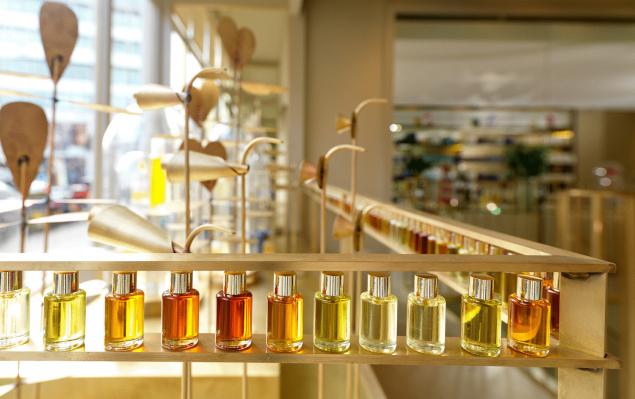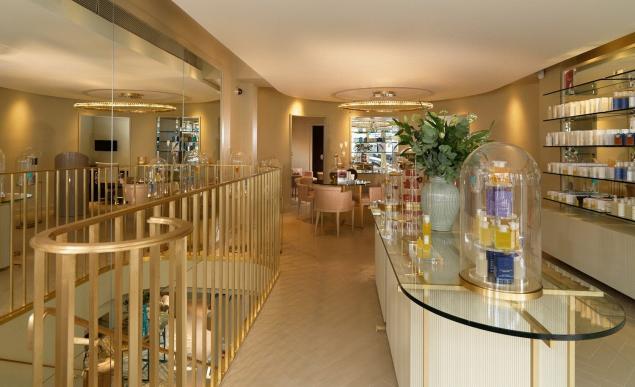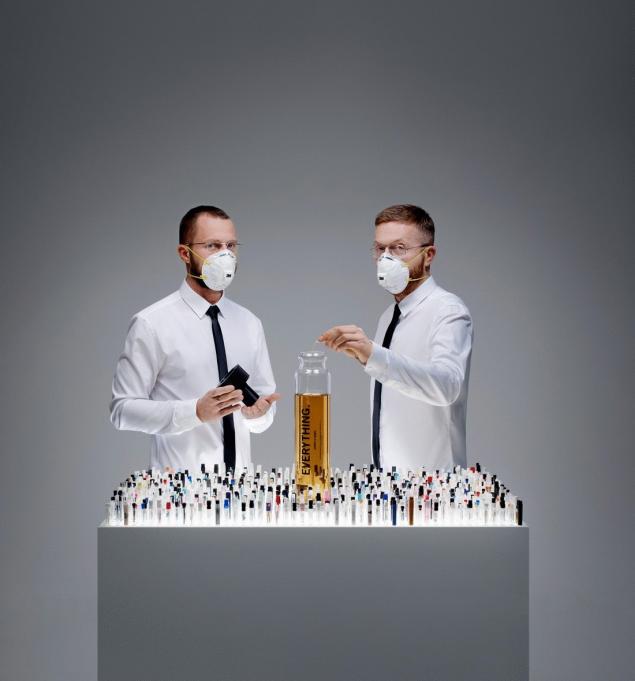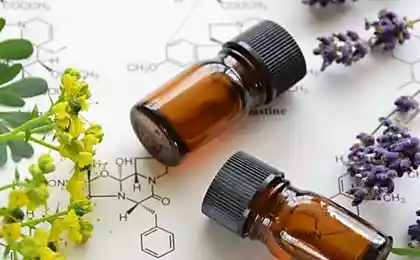433
Aromatic oils - aromatic agent of healing
Forty eight million two hundred eleven thousand eight hundred thirteen
Aromatherapy known to mankind for over five thousand years. In ancient Indian, Egyptian, and Babylonian civilizations, the preparations based on fragrant essential oils were widely used in religious ceremonies, cosmetics and medical practice. Tiny vessels with a narrow neck, for slower evaporation of aromatic compounds – the ether-bearing plants, was a mandatory attribute of the halls of kings and sacred temples. Small cones of a mixture of hardened fat and essential oils were used by Egyptians as a perfume–, was placed on the wig in the morning and was slowly melted by the sun, filling the surrounding area with its scent. As a means of communication with the spirits and the entrance into a mystical trance Voskresenie herbs present in the shamanistic rites of the American Indians and the peoples of the North, the ancient Slavs and the Chinese.

What is the secret of their effect on man? Whether there is scientific evidence for the efficacy of aromatherapy? First of all, the answer should refer to the physiology of the human brain and evolutionary theory. It is known that the sense of smell is formed as the first signal, sensing system in living organisms. Even single-celled amoeba and ciliates Orient themselves in search of food and protection from enemies on the analysis of the composition of floating in the environment of chemicals – they "sniff". In many animals, more than 80 percent of the information comes through smells. Not only finding food, but finding a partner, the directions of migration, belonging to the pack is determined by using smell. This is not surprising, as information from sense of smell comes not only in the cerebral cortex, where it can be assessed, but also in subcortical structures, where the perceived reflexively, unconsciously. In turn, subcortical structures associated with the limbic system of managing emotions and the autonomic centers that influence the function of internal organs. That is why the mechanism of action of aromas on the human brain dual. Smells can evoke old memories recorded in the brain as associations (grass – memories of summer, perfume – the scent of the woman), but can act directly, without the control and analysis to raise and lower blood pressure, induce a sense of aggression and relaxation, enhance sexual feeling and reassure.

It is not surprising that exposure to fragrances can help in the treatment and control mentality.Here are some facts that we know.The first researcher of the influence of odors on human mental activity was the American psychiatrist A. Hirsch. He determined that certain smells can change human behavior and encourage it to action. Developing special aromates(information about it is patented and still classified), he sprayed her in some halls retail and has received a sharp increase in their consumer activity, compared to "neopytnye" sections. The next step Hirsch has conducted studies on 3-thousand volunteers suffering from overweight. He offered them not to limit themselves in food, but before each meal to smell a special aroma. The result of six months research participants lost an average of 12.5 pounds, while some lost weight so fast that they had to withdraw from the experiment.

Further clinical studies showed that the scents of lavender, chamomile and sandalwood to soothe, weaken brain activity, and aromas of Jasmine, mint and cloves – stimulate the nervous system, stimulating the activity of the brain, no worse than strong coffee.
Today this discovery is widely used in many Japanese firms to increase the level of health of its employees. So at certain hours in air-conditioning system, spray some aromatic mixture: in the morning to Wake and cheer, after dinner – for the speedy digestion, in the evening to relieve fatigue. Such regulation of biological rhythms, allows to raise productivity of staff by 50 percent, while reducing the number of mistakes by 20 percent.Modern supermarkets, boutiques, car dealerships actively use the unconscious is based on aromorphoses to raise the level of sales among different consumer groups.
For grocery stores the greatest effect gives a fresh smell such as cucumber or watermelon. The smell of fresh bread or baking – increases salivation, hunger and willingness to buy products. In clothing stores to increase sales help scents of vanilla, lavender, Basil, peppermint and lemon. For shops selling skin-especially if in their assortment of goods from leather – spray smell of"real skin", gives a subconscious boost of confidence and willingness to buy these products.In business negotiations right aromatherapy effects can provide an invaluable service. Spraying before the meeting, a special odor will relax interlocutors, to encourage a sense of complacency and a willingness to cooperate. For example, the smell of some varieties of roses – provoking pliability and ductility, other varieties – stimulate a feeling of interest and admiration, the smell of pear – stimulates appetite, shifting the emphasis from negotiations to a well-covered table, the smell of citrus – produces many ideas, passion and dissipates attention.

There are special blockers the perception of odors. It is of a substance having similar to essential oils the structure, but not stimulating any areas of the brain. Once in the nasal cavity, they are firmly in contact with tactile receptors and do not allow them to respond to other molecules, and thus to distinguish other odors. These developments can be used if you want to work in places where a high concentration of unpleasant smells – such as fish markets, meat production.
Source: /users/1094
Aromatherapy known to mankind for over five thousand years. In ancient Indian, Egyptian, and Babylonian civilizations, the preparations based on fragrant essential oils were widely used in religious ceremonies, cosmetics and medical practice. Tiny vessels with a narrow neck, for slower evaporation of aromatic compounds – the ether-bearing plants, was a mandatory attribute of the halls of kings and sacred temples. Small cones of a mixture of hardened fat and essential oils were used by Egyptians as a perfume–, was placed on the wig in the morning and was slowly melted by the sun, filling the surrounding area with its scent. As a means of communication with the spirits and the entrance into a mystical trance Voskresenie herbs present in the shamanistic rites of the American Indians and the peoples of the North, the ancient Slavs and the Chinese.

What is the secret of their effect on man? Whether there is scientific evidence for the efficacy of aromatherapy? First of all, the answer should refer to the physiology of the human brain and evolutionary theory. It is known that the sense of smell is formed as the first signal, sensing system in living organisms. Even single-celled amoeba and ciliates Orient themselves in search of food and protection from enemies on the analysis of the composition of floating in the environment of chemicals – they "sniff". In many animals, more than 80 percent of the information comes through smells. Not only finding food, but finding a partner, the directions of migration, belonging to the pack is determined by using smell. This is not surprising, as information from sense of smell comes not only in the cerebral cortex, where it can be assessed, but also in subcortical structures, where the perceived reflexively, unconsciously. In turn, subcortical structures associated with the limbic system of managing emotions and the autonomic centers that influence the function of internal organs. That is why the mechanism of action of aromas on the human brain dual. Smells can evoke old memories recorded in the brain as associations (grass – memories of summer, perfume – the scent of the woman), but can act directly, without the control and analysis to raise and lower blood pressure, induce a sense of aggression and relaxation, enhance sexual feeling and reassure.

It is not surprising that exposure to fragrances can help in the treatment and control mentality.Here are some facts that we know.The first researcher of the influence of odors on human mental activity was the American psychiatrist A. Hirsch. He determined that certain smells can change human behavior and encourage it to action. Developing special aromates(information about it is patented and still classified), he sprayed her in some halls retail and has received a sharp increase in their consumer activity, compared to "neopytnye" sections. The next step Hirsch has conducted studies on 3-thousand volunteers suffering from overweight. He offered them not to limit themselves in food, but before each meal to smell a special aroma. The result of six months research participants lost an average of 12.5 pounds, while some lost weight so fast that they had to withdraw from the experiment.

Further clinical studies showed that the scents of lavender, chamomile and sandalwood to soothe, weaken brain activity, and aromas of Jasmine, mint and cloves – stimulate the nervous system, stimulating the activity of the brain, no worse than strong coffee.
Today this discovery is widely used in many Japanese firms to increase the level of health of its employees. So at certain hours in air-conditioning system, spray some aromatic mixture: in the morning to Wake and cheer, after dinner – for the speedy digestion, in the evening to relieve fatigue. Such regulation of biological rhythms, allows to raise productivity of staff by 50 percent, while reducing the number of mistakes by 20 percent.Modern supermarkets, boutiques, car dealerships actively use the unconscious is based on aromorphoses to raise the level of sales among different consumer groups.
For grocery stores the greatest effect gives a fresh smell such as cucumber or watermelon. The smell of fresh bread or baking – increases salivation, hunger and willingness to buy products. In clothing stores to increase sales help scents of vanilla, lavender, Basil, peppermint and lemon. For shops selling skin-especially if in their assortment of goods from leather – spray smell of"real skin", gives a subconscious boost of confidence and willingness to buy these products.In business negotiations right aromatherapy effects can provide an invaluable service. Spraying before the meeting, a special odor will relax interlocutors, to encourage a sense of complacency and a willingness to cooperate. For example, the smell of some varieties of roses – provoking pliability and ductility, other varieties – stimulate a feeling of interest and admiration, the smell of pear – stimulates appetite, shifting the emphasis from negotiations to a well-covered table, the smell of citrus – produces many ideas, passion and dissipates attention.

There are special blockers the perception of odors. It is of a substance having similar to essential oils the structure, but not stimulating any areas of the brain. Once in the nasal cavity, they are firmly in contact with tactile receptors and do not allow them to respond to other molecules, and thus to distinguish other odors. These developments can be used if you want to work in places where a high concentration of unpleasant smells – such as fish markets, meat production.
Source: /users/1094























